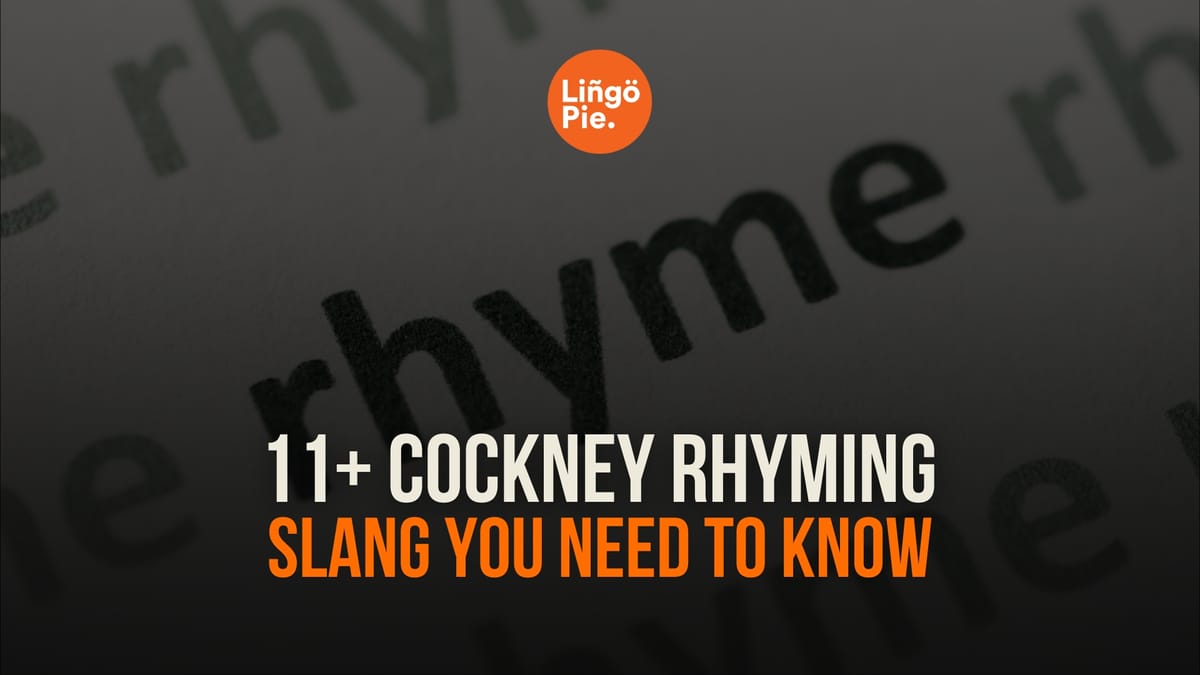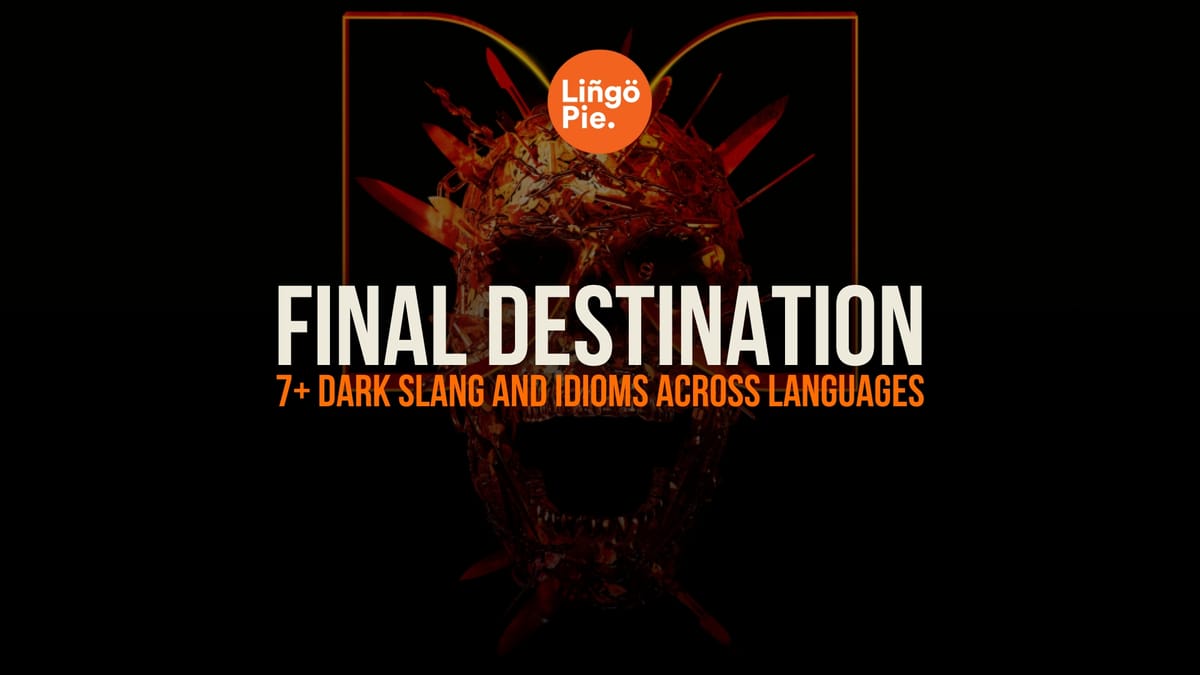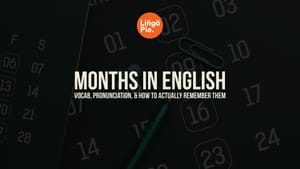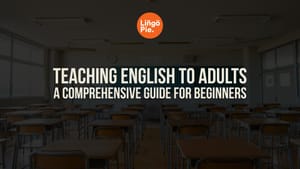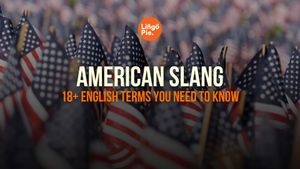Ever watched a British TV show and wondered why someone said "use your loaf" when they clearly meant "use your head"? Well, this is what the British people call as the Cockney rhyming slang.
In this post, I'll show you what this British slang is about and reveal how watching TV shows and movies (especially with Lingopie) can help you master this charming part of British culture.
- Swiss German And German Language: 5 Major Differences
- 11+ Best Shows On Netflix To Learn Korean
- Hello In Turkish: 10+ Greetings Native Speakers Use

What Is Cockney Rhyming Slang?
Cockney rhyming slang is a form of slang word construction in the English language. It is especially prevalent among Cockneys in England, and was first used in the early 19th century in the East End of London.
The construction of rhyming slang involves replacing a common word with a phrase of two or more words, the last of which rhymes with the original word; then, in almost all cases, omitting, from the end of the phrase, the secondary rhyming word (which is thereafter implied), making the origin and meaning of the phrase elusive to listeners not in the know.
- Take a word you want to replace (like "stairs")
- Find a phrase that ends with a rhyming word ("apples and pears")
- Drop the rhyming part (just say "apples")
- Use it in conversation ("I'm going up the apples")
Where Does Cockney Rhyming Slang Come From?
Cockney rhyming slang emerged in London's East End during the mid-1800s, though the exact reasons remain a bit mysterious. In the mid-1800s, with the new "bobbies on the beat", patrolling the streets of London, the cockney community were looking for a way to communicate without attracting the attention of the new police force.
Some believe it was a code language used by market traders and criminals to avoid being understood by police, while others think it was simply a fun wordplay game among the working-class community. Whether intentional or accidental, this creative language quickly spread throughout the country.
- 50+ Shocking British Insults You Need To Know
- 10 Best British TV Shows To Learn English
- 600+ Crazy Easy English Power Words For Advanced Learners
Common Cockney Rhyming Slang You'll Encounter
Use your loaf
This means "use your head" or "think about it." Coming from "loaf of bread" = head, this phrase is so deeply embedded in British English that many people don't even realize it's Cockney rhyming slang. You'll hear it in casual conversation all over the UK, often when someone needs to be reminded to think more carefully about something.
Telling Porkies
From "pork pies" = lies, this is one of the most beloved Cockney expressions. The term is much gentler than accusingly calling someone a liar, making it perfect for close friends or family situations. Many parents use this with children who are fibbing, and it's become a standard part of British vocabulary.
Having a Butcher's
Short for "butcher's hook" = look, this phrase is almost always shortened to just "having a butcher's." It's the Cockney way of saying "let me take a look" and is particularly common in markets or when examining something closely. The phrase originated from the hooks that butchers used to hang meat for display.
Dog and Bone
This means telephone, and remarkably, it still works perfectly in the age of mobile phones. The phrase dates back to when phones were much more formal affairs, but the rhyming slang has adapted seamlessly to modern technology. You'll often hear it shortened to just "give me a bell" (another phone-related rhyme).
Trouble and Strife
This refers to one's wife, and while it might sound harsh, it's usually used with affection rather than genuine complaint. You'll hear this constantly in British gangster films and working-class dramas. The phrase reflects the traditional, somewhat cheeky British humor about marriage.
Adam and Eve
Meaning "believe," this phrase is often used in expressions of disbelief or surprise. It's particularly popular in London and you'll hear it in chat shows, comedies, and everyday conversation when someone is shocked by news. The phrase plays on the biblical names for a very common word.
Boat Race
This means "face," usually shortened to just "boat." The term comes from the Oxford-Cambridge boat race, and while that connection might seem obscure, the rhyme has stuck. You'll often hear it in phrases like "look at the boat on him" or "show your boat."
Plates of Meat
This refers to "feet," usually shortened to just "plates." The phrase is especially common when talking about sore or tired feet, perhaps because the imagery of plates supports the idea of what your feet have to carry. You'll hear it in casual conversation about walking, dancing, or uncomfortable shoes.
Mince Pies
This means "eyes," typically shortened to "minces." The phrase is often used when commenting on someone's eyes, whether they're attractive, unusual, or expressing a particular emotion. It's a more colorful way of talking about someone's gaze or expression.
Bees and Honey
This means "money," often just "bees." It's one of the most practical pieces of rhyming slang since money is such a common topic of conversation. The phrase works whether you're talking about having money, needing money, or spending money.
Apples and Pears
Simply meaning "stairs," this is often shortened to just "apples." You'll hear characters on British TV saying "going up the apples" instead of "going upstairs." This is one of the most fundamental examples of Cockney rhyming slang and perfectly demonstrates how the rhyming word (pears) is dropped in casual speech.
Celebrity Rhyming Slang
Hank Marvin

Named after the guitarist from The Shadows, this means "starving." It's one of the most popular modern additions to Cockney rhyming slang and shows how the language adapts to include contemporary figures. Young Londoners use this constantly, often without knowing who Hank Marvin actually was.
Pete Tong

Named after the famous DJ, this means "wrong." The phrase "it's all gone Pete Tong" has become so popular that there's even a British film with that title. It's used when situations have gone badly or when something is messed up.
Ruby Murray

Named after a 1950s singer, this means "curry." You'll see curry restaurants called "Ruby Murray" all over London, and the phrase is so embedded in British culture that many curry houses use it in their branding. It's the standard way to suggest going for Indian food.
Scooby Doo

This means "clue," as in "I haven't got a Scooby" (I don't have a clue). Named after the cartoon dog, this shows how Cockney rhyming slang continues to evolve with pop culture. It's particularly popular among younger generations and demonstrates the living nature of the language.
How To Learn Cockney Rhyming Slang
Learning Cockney rhyming slang can be tricky because speakers often drop the rhyming part, making it nearly impossible to guess the meaning. Cockney rhyming slang is continually evolving, and new phrases are introduced all the time. This is where Lingopie's features comes in handy:
- Interactive subtitles help you catch phrases you might miss in regular viewing
- Click-to-translate features let you immediately understand slang terms
- Replay functionality allows you to practice mimicking the accent
- Slow playback options help you process the unique Cockney pronunciation
With Lingopie, you can watch authentic British content while getting real-time help understanding the slang. No more rewinding five times to figure out what someone just said!
Ready To Start Your Journey?
Now that you understand the basics of Cockney rhyming slang, why not put your knowledge to the test? Fire up Lingopie, choose a British TV show or movie, and see how many examples you can spot. Remember, the key to learning any language quirk is practice and exposure—and there's no better way to practice than through the entertainment you already love!
Would you Adam and Eve it (believe it)—you're already on your way to understanding one of Britain's most charming linguistic traditions. Happy learning, and remember: when in doubt, just use your loaf!


